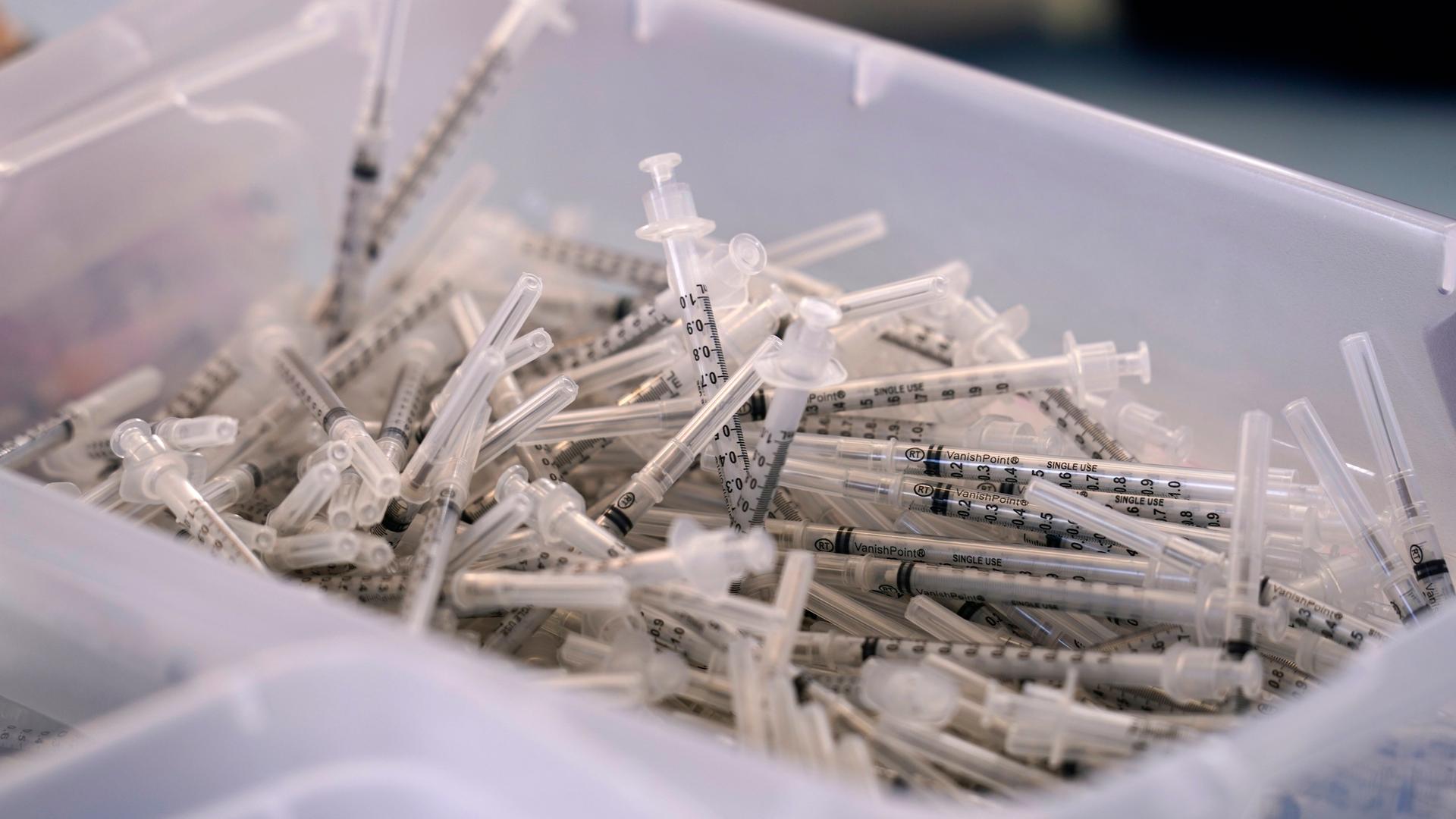Last spring, member states of the World Health Assembly called for an independent review of the globe’s response to COVID-19 and recommendations for the future.
A panel of 13 global health leaders convened, and today, their report on the pandemic is out.
Related: Norway’s minister calls on others to follow his country’s lead in sharing COVID-19 vaccines
“The world was not prepared for this one. It must be prepared and ready for the next.”
“The world was not prepared for this one. It must be prepared and ready for the next,” said Ellen Johnson Sirleaf, the former president of Liberia and co-chair of the panel.
Sirleaf said the global systems to prevent and respond to pandemic threats are in urgent need of reform.
Related: US to engage in talks on COVID-19 vaccine patent waiver
Looking back, the World Health Organization could have acted sooner in declaring a global health emergency. But even with that, countries clearly did not react soon enough, anyway. Had that happened, this whole catastrophe could have been averted.
“This was partly due to a failure to learn from the past. There are reviews of previous health disasters that have gathered dust in basements of the United Nations and governments. The world had been warned that this would happen. This should never happen again,” said Sirleaf.
Related: WTO rep says patent waiver ‘strikes the right balance’
Dr. Joanne Liu, a member of the Independent Panel for Pandemic and Preparedness Response, joins The World to talk about the new report and lessons learned so far from the pandemic in terms of preparedness.
Liu is a professor at McGill University in Montreal, Canada, and served as the former director of Doctors Without Borders.
Marco Werman: Dr. Liu, your group is calling for big reforms to these global health systems that monitor disease outbreaks and prevent them. What needs to change?
Dr. Joanne Liu: We have a set of calls for immediate action to happen. Right now, we need to redistribute vaccines. We think that a high-income country would have 1 billion vaccines to distribute, and we wish it would do that by Sept. 1, or at least commit to [doing] that. We need to finance the research and development platform, and then bridge the funding gap. And then, lastly, we think that we need to increase the availability and the manufacturing of vaccines through voluntary licensing and tech transfer. By doing that now, I think it’s paving, as well, the way to be better prepared next time around.
But in terms of global leadership, your panel found that the WHO is limited in its ability to act. So, why is that, and how could it be made more effective?
I think … we need a bit of a reset and another way of looking at pandemic. And we call it the “Chernobyl moment” of the 21st century, saying that we need to elevate the threat of pandemics at the level of nuclear weapons, where all of us agree that the consequences are so dramatic that everybody needs to pay attention, and then we need to avoid those kind of events. And if we do that, then the rest will unfold naturally. It means that we will strengthen WHO. … And we will shield the institution from undue political pressure.
How do you raise the concept of a pandemic to the level of nuclear war? I mean, is it through messaging?
Partly. But we need to walk the talk. So it means that it needs to get the highest level of attention at [the] political level and therefore it needs to be dealt [with] at the level of head of state or prime minister. And this is why we call upon forming what we call a Global Health Threat Council.
We heard Ellen Johnson Sirleaf state that reports often collect dust in basements. What is the main lesson about how to prevent history from repeating the missteps when it comes to pandemic preparedness?
This is so, so distressing to some extent, because there have been more than 11 panels and commissions and we know that less than 10% of the recommendations were implemented. The reality is we are not short on recommendations. We are short on action. I doubt that any of us wants to go to another 12 months of what we went through, and if we are really tired, then we need to fix the system.
This interview has been edited and condensed for clarity.
